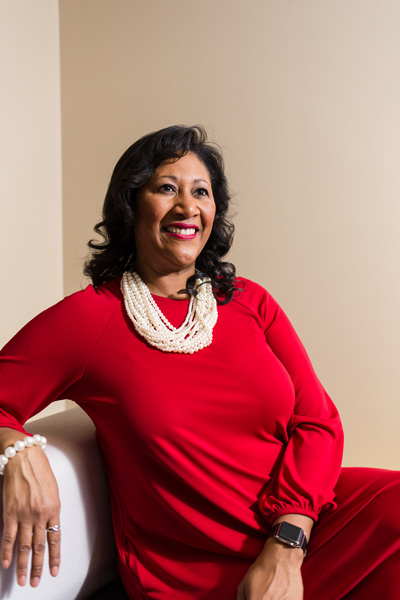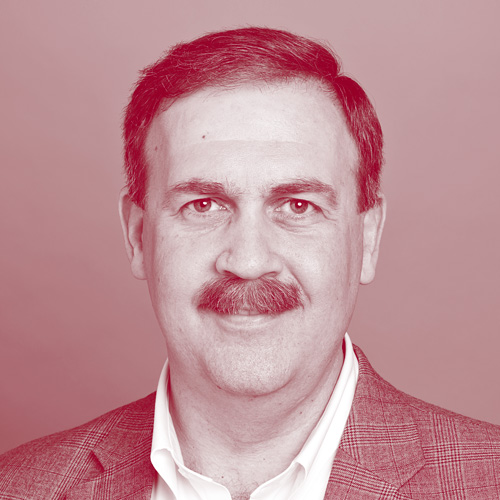
Some of what Dorri McWhorter, CEO of YWCA Metropolitan Chicago, says might surprise you. Here’s a piece of wisdom for example: “Don’t take other people’s advice.” Here’s another: “Anyone can make a better human experience in whatever work they already do.”
However, what might be most surprising is her take on the private sector. Yes, McWhorter is active in Chicago’s civic and philanthropic communities. However, before joining YWCA, she was a partner at the accounting firm Crowe Horwath. She’s even won many awards for her business career: the Athena International’s Young Professional Leadership Award (2010), Chicago Business Leader of Color (2009 honoree), Diversity MBA Magazine’s Top 100 Under 50 Executive Leaders (2009 recipient), and the Illinois CPA Society’s Outstanding Leadership in Advancing Diversity Award (2010). Her positive experience in the private sector now reflects her work with the YWCA.
McWhorter thinks that for-profit businesses such as Coca-Cola actually do a lot of good in the world, and that nonprofits should better align with these private-sector businesses. At the end of the day, she thinks it’s truly about doing good for your community, and that can be done from any position.
What motivates you in your work, both at the YWCA and throughout your career?
I sound like Miss America, but I really want to improve the world. I’m motivated by the opportunity to leverage business to make a better society. I’ve always been a consultant; I was a CPA originally. I’ve seen and participated in ways we can use business to make a better, more advanced society and world. For me, joining the YWCA was the best place to do that.
Equality and empowering women is very important to me, and not because that’s the gender I identify with. Statistically speaking, it’s demonstrated that 96 percent of women’s income is spent on education and health, things that make a difference to families and communities. Equal opportunity and economic empowerment for women leads to stronger communities. At the YWCA, we focus on safety, wellness, training, and economic sustainability—all things that create a better world.
Why do you think it’s important to focus on communities and not just take a big-picture view?
Everyone is in a community. You operate on a community level because that’s where you can cause change and make a true connection. You start at the ground level and build your way up.
You worked to create YShop, an online store where a portion of each purchase goes to benefit the YWCA and the communities they support. Why did you decide to create it?
First of all, the YWCA is 140 years old. Since the economy is driven by consumer behavior, we wanted a way to reach our constituents—donors as well as those benefiting from our services. YShop was a way to foster digital engagement. Our constituents engage with us, and we provide a service to small businesses. We partner with women- and minority-owned businesses, and create opportunities for them. Our constituents are very excited about this platform. It’s dual-purpose, and it allows smaller businesses to market themselves in ways they couldn’t before.
You also worked to create the Women’s Health Exchange, which empowers women in caring for their mental and physical health. What was the impetus behind that?
The Affordable Care Act is now the law of the land. But in Illinois, only 39 percent of those eligible were getting health insurance. We realized there must be a reason for it. We have certified enrollment counselors at the YWCA, so we can help people get insurance. However, we couldn’t provide advice on how to make the best choice of coverage and insurer for you or your family’s needs. There are so many options. We wanted our site to be a portal to information and access so you could make more informed decisions by working with associations, experts in certain types of care, and more.
You’ve worked with the YWCA for a while now, both on new projects and on providing consistent support and care. Are there unique challenges that the YWCA faces?
There is a challenge of evolving into a more sustainable business model. The YWCA has been in Chicago for a long time, but the economy and the world are changing. Funding has slowly dissipated from some of our traditional sources, and we’re finding new ways to fund ourselves now. Working with private-sector businesses and having them see us as a potential business partner has helped. They see how valuable we can be to their work.
What is your advice for other businesspeople who want to do the type of work you do?
Don’t take other people’s advice. This is very important to me. People believe you have to work in a nonprofit to do good. This is silly. If nonprofits are the only organizations doing good, what is the rest of the market doing? Not everyone can join a nonprofit; the sector couldn’t support that. So, we all have to do good wherever we are. Anyone can make a better human experience in whatever work they already do. Journalists do it through awareness, and businesses can do it through their services. Even when I was an accountant and a consultant, I looked at the experiences of my clients and how to improve those experiences. Helping people meet their career goals and do more for their families was how I made the world better.
I work at the YWCA because it tackles the kinds of issues I wanted to work on, but there are many businesses who have positively impacted the world. Coca-Cola, for example, has supported small-business owners around the world, particularly in impoverished areas, with its initiatives. Doing good needs to be integrated into the business model from day one. Not, “We’ll make our money and then give back later.” No. If we do it all along, we will create a stronger business, a stronger marketplace, and stronger communities.
I think people have lost sight of the fact that they can do good from wherever they are. We sometimes get caught up in, “What is good?” or “How good is good?” But there is so much we can do to make the world better

